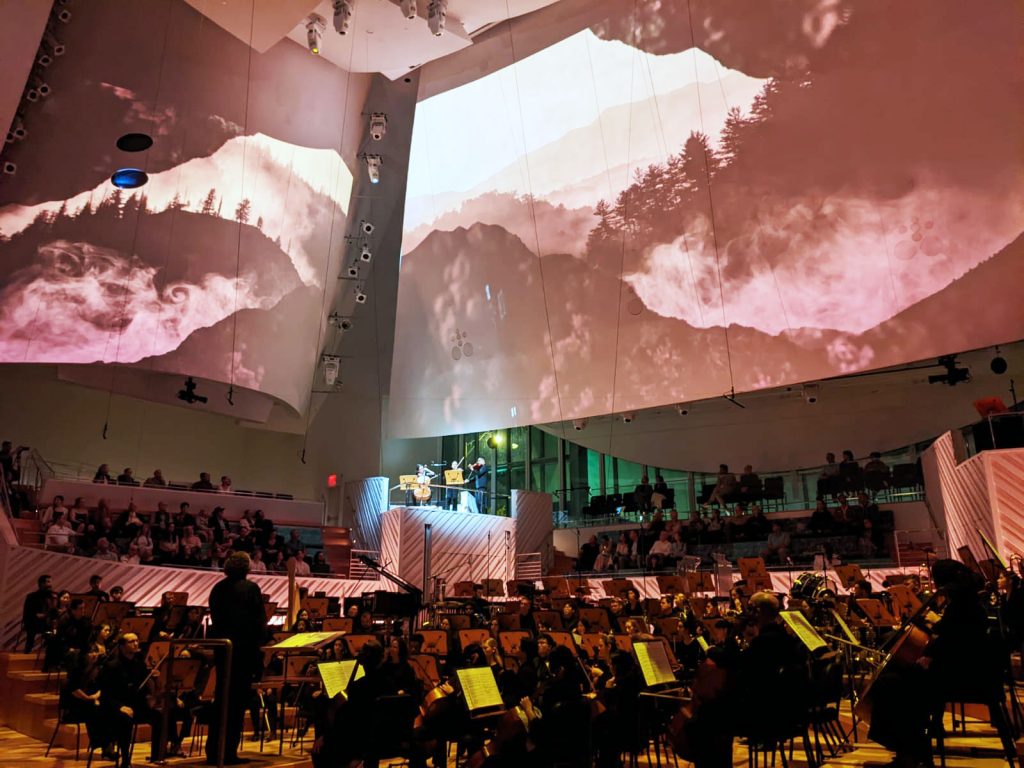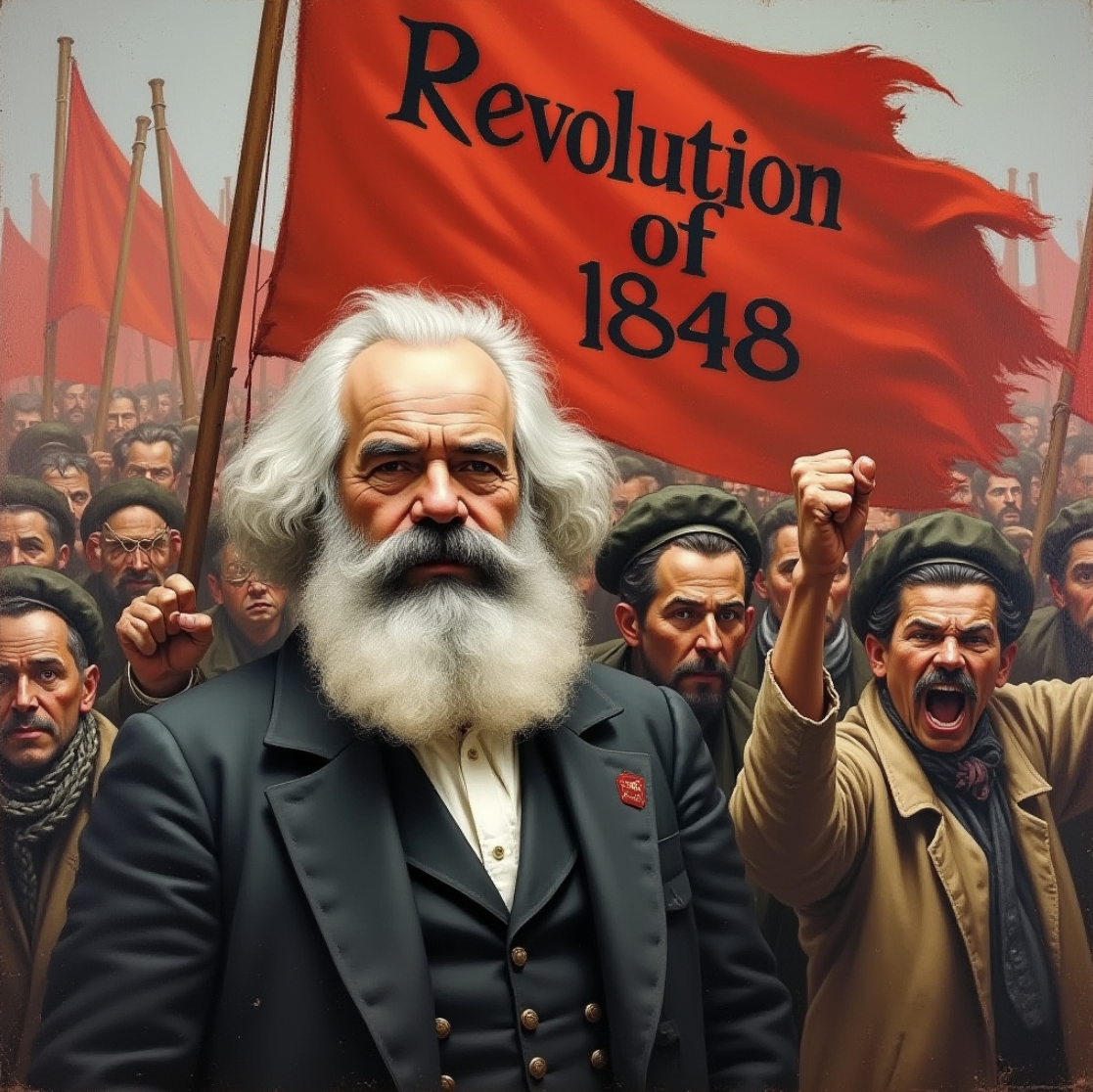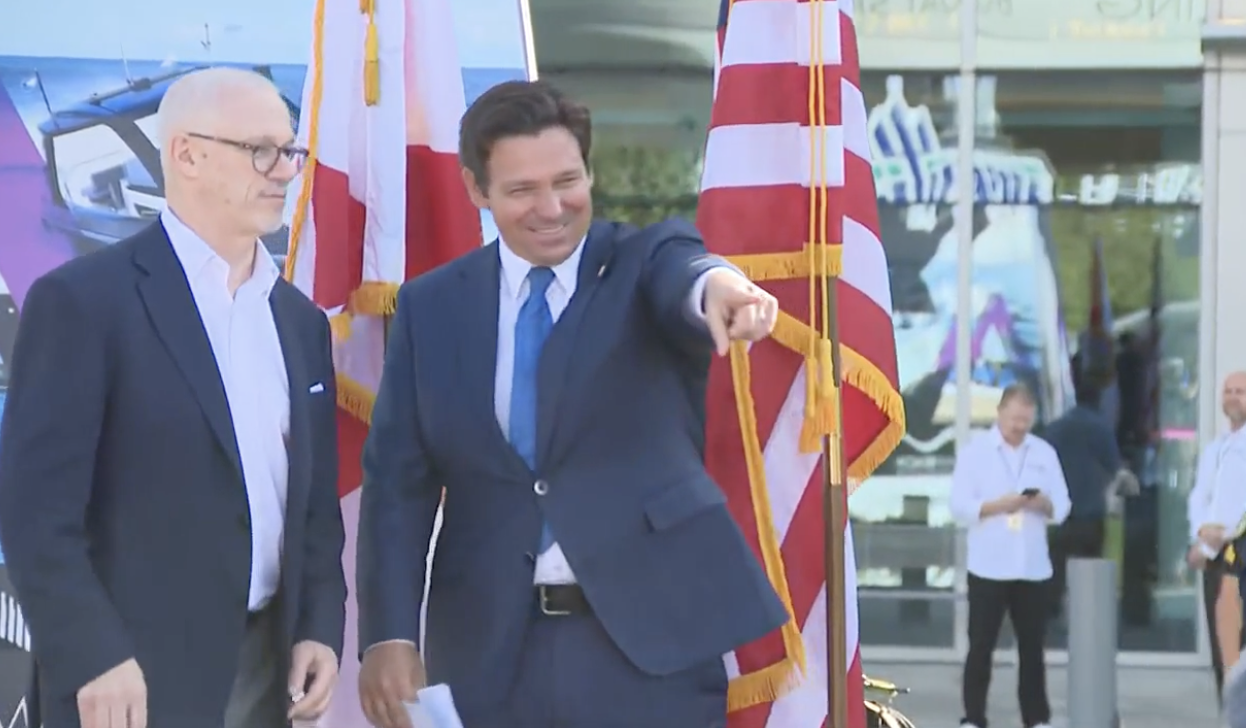
Please Follow us on Gab, Minds, Telegram, Rumble, Truth Social, Gettr, Twitter
Over Easter weekend, the New World Symphony under the baton of Stéphane Denève (the new Artistic Director for over a year) put on an intricate if ultimately unsatisfying concert titled Blue Cathedral.
Showing off the New World Center’s shapely curves (Frank Gerhy’s building, inside or out, has few structural straight lines), it was a multi-media and multi-stage performance – centered around Jennifer Higdon’s eponymous composition from 1999, dedicated to her deceased brother named Blue.
Denève interviewed Higdon last fall and then structured the program based on the information gleaned, including some major musical influences on the composer, who grew up in Tennessee and was impacted by its bluegrass traditions.
The program, accordingly, interspersed live performance with videos clips from the interview; a major influence was discussed, then America’s premier youth orchestra played a representative piece or excerpt.
‘NO AD’ subscription for CDM! Sign up here and support real investigative journalism and help save the republic!‘
The least satisfying excerpt played was from the Beatles’s “Sgt. Pepper’s Lonely Hearts Club Band” – there is nothing like the original – and despite their sharing a home country, the French composers highlighted, Ravel and Debussy (the orchestral richness of their sounds and works being the draw for her), were disappointing.
Surrounded by more innovative and less familiar music may have put them at a disadvantage – only during their performance did I find my mind wandering out of boredom – but one has to wonder at the selections and how the program notes framed them. Both pieces were somewhat mystical laments, but we were informed by program notes that Ravel despaired of having given too heavy a title to his “Pavane for a Dead Princess,” resulting in performances too often lugubrious. While I accordingly expected a slightly more up-tempo version, it turned out to be as slow and plodding as always. An unnecessary disappointment.
Selections from influencers Mark O’Connor (his Appalachia Waltz chamber piece was lyrical; pictured in the above image) and John Adams (his Short Ride in a Fast Machine) were more satisfying.
The most beautiful and compelling selections were a bluegrass ensemble playing Dolly Parton’s “The Grass is Blue” and Higdon’s interpretation of Amazing Grace, from 1998, the year prior to her brother’s death and birth of blue cathedral.
To show the depth of the NWS’s bench, the finest solo performance by my sights was from a young Australian singer whose principal role is Audio/Video maven (find her @indiahooi). Her rendition of Parton’s “The Grass is Blue” was transcendent; instead of any noticeable Down Under accent, she sang with a heartfelt, somewhat husky twanginess. I couldn’t restrain myself and hollered “Bravo!” after.
This was the chosen work (a lament for a lost relation) which reverberated best with the interview narrative, centered on her near-twin brother’s early death at age 33.
Higdon’s lyrical “Amazing Grace” began hauntingly, with most of the seated musicians without accompaniment whisper-singing the famous hymn’s opening lyrics, and slowly added sound, texture, and heft.
After such an involved buildup, I found the final work, the headlined blue cathedral, to be anti-climatic. Countless times we were told Blue Cathedral is the most-played modern orchestral work since the turn of the century; our performance was number 1,024. What was I missing?
I attended the pre-concert chat with four fellows, one of whom warned us we would cry – as she did during two rehearsals – but, again, my expectations were raised unheedingly. (I did nearly tear up during Parton.)
Another fellow admitted that, a year in with a new Artistic Director, he (and others) are still trying to understand what exactly he wishes. (Are there communication problems?)
Thus primed, I couldn’t avoid feeling that the evening didn’t quite hang together. The prior weekend I attended a concert in ths same hall by South Florida Symphony (the region’s premier professional orchestra) – which, indeed, sounded more professional. With the NWS there were the infrequent off-notes or mis-emphasized executions to be expected from a youth orchestra, no matter how premier, but it went beyond that.
I don’t recall the same level of missteps with former Artistic Director Michael Tilson Thomas – under whom the NWS was a well-oiled machine despite the 3-year turnover period of most fellows.
Denève is clearly creative (as the program’s innovativeness attests to), energetic, and even impish with both audience and his young charges. He began the concert, during the usual silencing of the hall, with a theatrical look behind him, to one side then the other. When the music flourishes, so does he, jumping around at times and enthusiastically giving encouragement to solists or sections.
But his performance lacks some of – what may be called by a far from musical expert, just a music lover – maturity. At the conclusion of “Amazing Grace” and just prior to the finale work, Denève squashed the audience’s enthusiasm, having programed a video clip immediately after – even lifting his open hand to the audience with a “Be silent!” gesture. Why not allow what would have been the most enthusiastic cheer (second only to after Parton’s work) to proceed? A rookie error perhaps.
I need to point out that the Saturday night performance was just prior to Easter Sunday, yet not a peep was made about it. (One has to ask: are both Jew- and Christian-disdain being normalized by our secular humanist masters?)
The audience, beyond doubt, was largely secular itself, yet one could say that the most popular/populist (and humble) piece was Parton’s, and the most appreciated was Higdon’s adaptation of Amazing Grace – which of course contains great spiritual power.
Despite our day and age’s relentless suppression of our Judeo-Christian culture, the traces of appreciation even among an elitist audience on Miami Beach remain strong.
I wish that you had a meaningful and reflective Resurrection Sunday. I certainly needed it.
Ben Batchelder is the author of four extended travel yarns and became a Contributor to The Miami Independent at its inception. Contact him at his author site benbatchelder.com





















